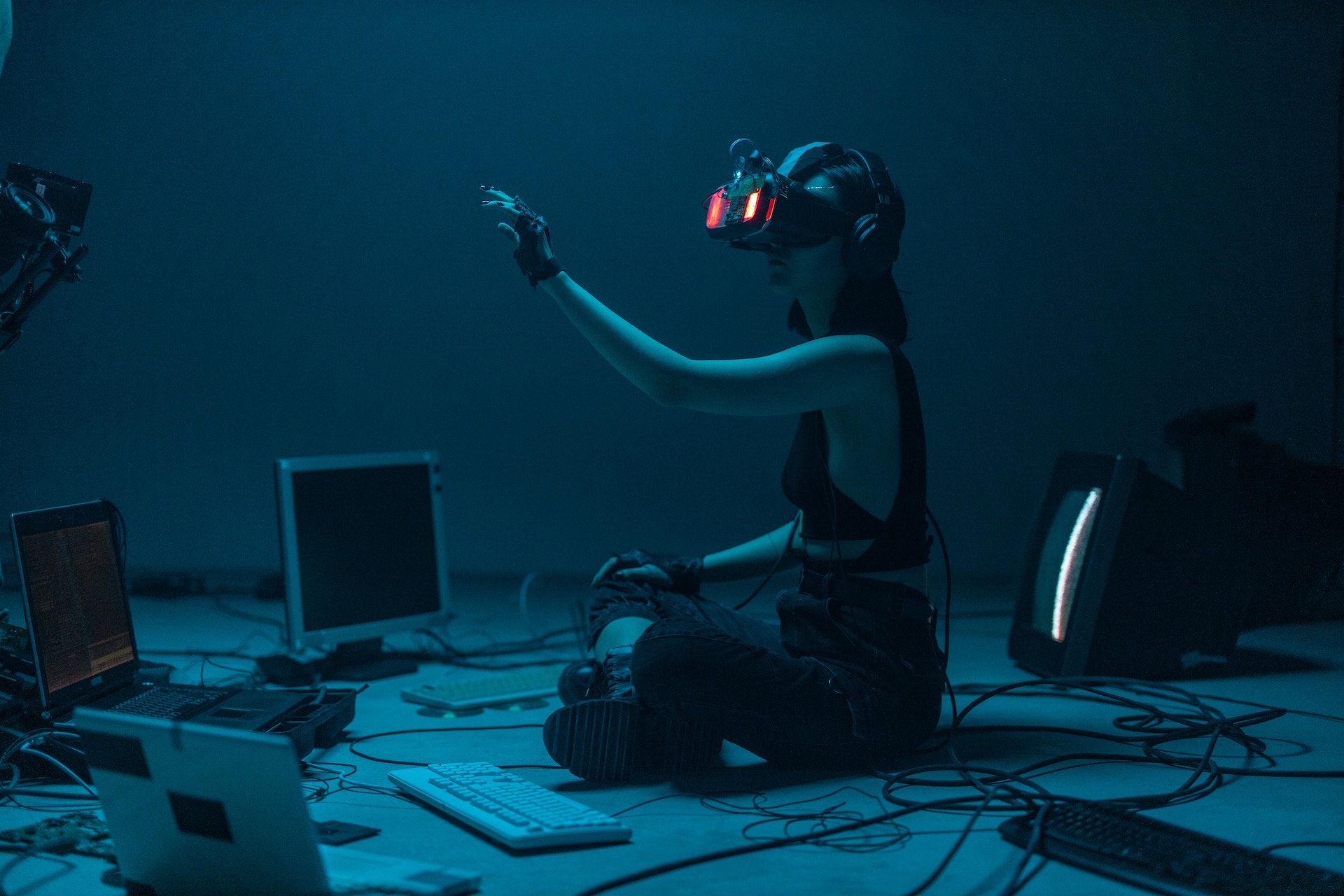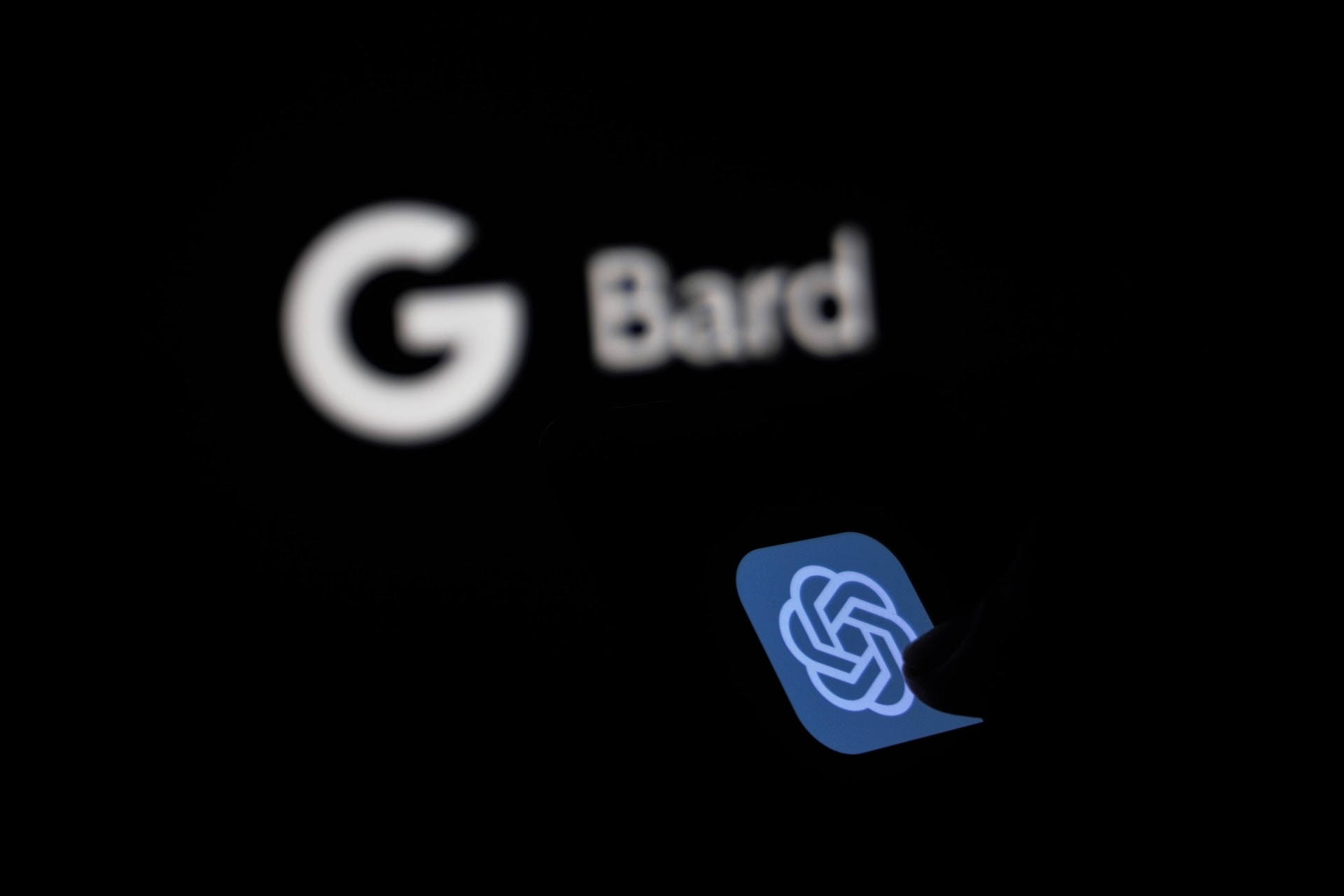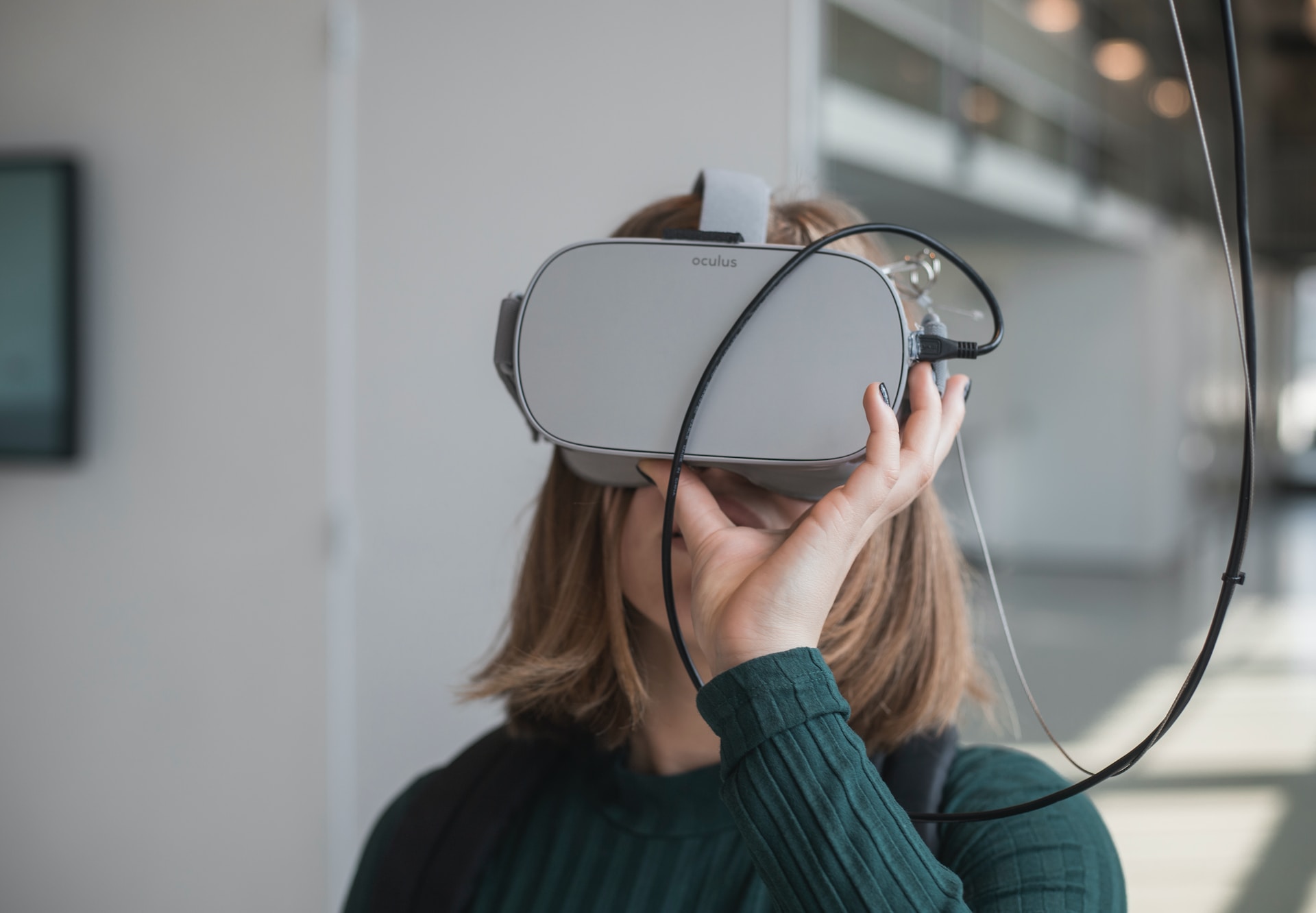Do you remember the metaverse?
Mark Zuckerberg’s dream for the future of the internet. An all-in-one experience where you live and work and entertain yourself. The next big leap into modernity for brands looking to attract new consumers. A tool for people looking to forge their way into a brighter future where they could truly be anyone they wanted to be.
The metaverse: a seamless, interactive, internet-brought-to-life experience championed by AR, VR, and XR.
In March 2023, a handful of months after hiring countless workers to boost Metaverse production, Mark Zuckerberg announced two pieces of news.
- Meta would layoff over 13% of its employees.
- Meta is going to focus on AI.
Naturally, the internet took it as a clear indication that the metaverse dream is entirely dead in the water, and Meta threw away $36BN of profit.
The truth is a little bit more complicated than that.

Is the Metaverse dead?
No. For the Metaverse to be dead, there needs to be a complete stop in all activities related to the metaverse. No more activations. No more brands working on virtual reality store fronts. No more money pumped into the metaverse itself.
There’s a second aspect. For the metaverse as Mark Zuckerberg envisioned to be dead, it would have needed to have been active to start with.
The metaverse as Mark Zuckerberg imagined – that of a fully immersive environment – was never brought to fruition. The environment that Mark Zuckerberg wanted to create, where you would put on a headset and hop down into a world where you could feel as though you were there in person, was hampered by technological setbacks and the pure, unmitigating factor that that kind of immersive experience is years away from being even minorly accessible.
As the metaverse stands now, it’s an extension of the internet with interesting AR and VR opportunities, but it was never anywhere near what the original video promised.
And brands are still using the metaverse that was created: the metaverse that is just another extension of online activations that we’ve had before.

Will the metaverse ever be created?
There’s always the chance that the metaverse will exist.
But not any time soon.
The metaverse isn’t just as simple as saying ‘the internet, in reality’. It’s a combination of cutting edge technology that we simply don’t have available to us right at this moment, and that we won’t have available until more time has passed. Similar to James Cameron taking ten years to film the sequel of a popular movie because he had to wait until better technology was available, the metaverse isn’t fully dead yet, but its sleep might last for a long time.

Why did Mark Zuckerberg stop developing the metaverse? Is it because of AI?
The official reason Zuckerberg gave is this: Meta now has a team that is dedicated to producing generative AI tools. This announcement, and the relative silence on the Metaverse, has led to the internet concluding that the metaverse has been paused indefinitely.
It isn’t the worst thing in the world. The metaverse can’t move forward until the issues of better technology are breached. As a result, some stalling is expected.
But AI likely has nothing to do with what’s going to happen with the Metaverse.
In our first blog, we said that, although Zuckerberg is the one who named the Metaverse, it’s a bigger entity than just Meta, and that still holds. Meta itself isn’t the sole company developing metaverse technology, and new improvements can happen any day.
It’s unlikely.
But people also said that ‘thinking’ AI was unlikely as well, and generative AI made an impact in 2021 that hasn’t slowed down yet.

What about all the technology developed for the Metaverse?
They’re probably not going anywhere.
Neither is that the metaverse suggested: the understanding that we can communicate on a much deeper level online.
The problem with the metaverse isn’t a case of technology that isn’t useful in other ways. It’s a case of technology not being developed quickly enough to keep the momentum and hype going, and of being a steep price of admission for brands with very little possibility of payoff. The advancements made in VR and AR aren’t wasted: they’re new opportunities for brands to play with.
However, it might be a while before we see them become the norm. They’re still expensive technologies to use, with little guarantee of significantly higher payoff – deep concerns for any brand operating during a global recession.

Is AI the next big thing?
Yes. At least for now.
However, generative AI models might find themselves hampered sooner rather than later: the industry itself is inundated with negative stories about the use of AI, and public backlash about generative AI has been swift. Brands that have opted to work generative AI into their regular line-up have to be careful how they do so: too much of it taking over traditional artforms, and the complaints are swift.
Add in the current controversies about where, and how, language models are trained, and the capabilities of AI might be limited to certain aspects of businesses rather than become a wholesale creative approach.
However, AI is undeniably a part of the future of marketing.
Whether it’s going to be used to generate reports or write short captions, to come up with campaign ideas or to design simple things, AI has a place in the world we’re building.
But its place is likely going to be less influential than we’re seeing right now. And AI – for all its capacity to emulate and respond to queries in a human way – is still a machine.

Can AI be better than what it is now?
AI will improve: that much is certain.
How it will improve is difficult to say.
The initial image-generative AI had a problem with hands. A program was written in a handful of days to train AI to spot this weakness and to fix it; therefore, now, a generated image that includes hands is more accurate than it was before. The journey for AI is going to be full of these setbacks and quick fixes, and we’re going to see the interim stages of AI develop in real time.
What needs to be kept in mind is the public backlash against AI models. The program mentioned above received a lot of criticism levied at the idea that it’s training a machine to create artworks that real artists can do far better. This might prove to be AI’s biggest stumbling block – no matter how good AI can get, it’s always going to be dogged by the idea that the human element of art resides in the human.
However, there’s hope for AI as a tool: to generate reports, to generate ideas, to come up with a quick way of saying something simple.
For things more complex than that, the jury is still out.

Some companies are already implementing AI into their systems…
When the Metaverse first became active, a handful of brands immediately hopped online to create their virtual worlds.
This is a similar situation.
AI isn’t refined enough yet to take over the amount of jobs that people are predicting. Similarly, the Metaverse isn’t refined enough yet to solely become a brand’s only presence online.
At this implementing AI into the way your business runs isn’t a bad idea.
It’s just not going to look the same between now and the next update to the generative AI models you’re using.
That’s part of the process.

Is AI likely to end up like the Metaverse?
No.
The metaverse might be in stasis for a very long time, but the opportunity to improve on it is still relevant.
However, our capacity to create generative AI models and to train those models is a far more accessible level of possibility than creating a new dimension of interaction. AI has almost half a century of headstart and is far more advanced than the Metaverse.
There’s another aspect to consider: AI and the Metaverse are going to collide. Tech doesn’t exist in a vacuum. The progress that is made in one will impact the other – whether or not we plan for it, and the progress that is being made for AI is going to change what we can do with the metaverse.

What else should I know about AI?
AI is still growing.
This blog is going to be out of date by next week. The advancements made in AI move so quickly that we’re always going to be a little bit wrong about where it’s going, and when it’s going to get there – so our advice is this: keep an open mind.
There’s a way to use AI that’s respectful, useful, and beneficial to your company, without generating the kind of backlash that other companies will generate.
But the time to do that might not be now.
In the meantime, all you can do is wait, and keep an eye on things.

And the metaverse? What should I know about that?
This is a personal note.
I think the metaverse is likely to happen – but I think it’ll look a lot more like the early days of the internet. Do you remember cluttered webpages, full of easter eggs and secrets?
The thing about developing massive, structure-changing things like the metaverse is that if it doesn’t stick to the timeline originally envisioned, its development will slow down – but it doesn’t mean that the iteration already available won’t be used. In the Metaverse, the option to to create niche little corners of the web where secrets abound is already on us, and in some cases, it’s an option that people have taken to heart. There’s hidden comedy clubs. There’s places where you can play games. There are opportunities for you to meet strangers from around the world, and establish a routine online that’s different to the way the internet functions now.
If you separate the metaverse from the idea of using it as a brand playground, there’s a lot of opportunity to be creative. It just won’t be fully immersive in the way that we’ve already seen – but that’s not a detriment.
As it stands, there are fewer and fewer places online where you can go online and just be. A lot of the spaces that we remember from our youth have either become a shadow of their former selves, or they’ve rebranded and therefore lost their way, or their rebrand appeals to no-one because they try to court too many audiences.
The metaverse is uncharted territory. At this moment, it can be whatever we make it, and everything online tends to go back to its roots, and that is both its greatest asset and its biggest downfall.
For me, I think the Metaverse will be a resetting of the idea of online communication. I think we’ll go back to the nineties way of creating places just for fun instead of profit. I think the Metaverse will be tantamount to discovering a new way of communicating between us.
But that’s only my take.

Here’s another.
The metaverse feels like an inevitable trajectory for tech, even if the shape it takes has yet to be fully determined. So far, we see it as a separate space. We consider the metaverse to be this parallel existence that we need to wear VR headsets to participate in. We see it as a sandbox within which humans (and brands) can exist in a way that’s not bound by the limitations of our corporeal existence. That alone can be fun. If you’ve played role-playing games or world simulators (remember The Sims?), you can see how a VR version of this could be hugely enticing.
Then there’s the AR version, an augmented version of our reality that’s simply superimposed by means of tech. This is even closer than we think and, as hardware shrinks in size and simultaneously gets more powerful, feels well within reach.
But this is only thinking about the tech. Consider the tech that is thrown our way and that we simply refuse to adopt. 3D televisions were all the rage for a minute but we didn’t buy them. Then it was curved screens but we didn’t like those either. Just because there exists a device that does something doesn’t mean we will all adopt it and it takes critical mass for tech to make financial sense. With Apple now making bold moves and their history of category-defining hardware, this aspect is moving closer to a reality we can grasp.
So, while we can’t speculate on what the form we adopt will be, we can be quite certain it will be the user experience that determines the success (or failure) of the metaverse.




